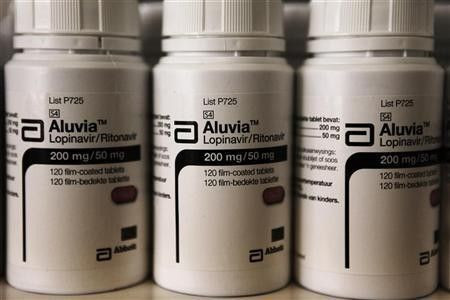Antiretroviral Drugs Can Prevent HIV in Hetrosexuals: Studies

Two new studies released on Wednesday have found that taking antiretroviral medications can significantly reduce risk of HIV infections.
The two studies were conducted in Africa among heterosexual couples in Kenya, Uganda and Botswana found that daily drugs for the sexually transmitted disease reduced infection rates by an average of at least 62 percent when compared with placebo.
One of the studies was conducted by the U.S. Centers for Disease Control and Prevention and the Botswana Ministry of Health and the other was conducted by the University of Washington and the Bill and Melinda Gates Foundation.
In the University of Washington study, serodiscordant (mixed HIV status) heterosexual couples saw a 73 percent decrease in rates of transmission when this method was employed. Similarly, the CDC study, which involved healthy, sexually active men and women, found that taking antiretroviral drugs reduced risk by 63 percent.
The first study, called The Partners PrEP Trial, has been following 4,758 couples, in which one member has HIV and the other does not, in Kenya and Uganda. The uninfected partner was given a daily pill containing tenofovir; one-third received tenofovir, one-third received tenofovir and emtricitabine, and one-third received a placebo pill.
By the end of May, researchers’ detected researchers detected 78 new HIV infections among the couples. Eighteen new infections were among the group receiving tenofovi, 13 in those assigned to the combination pill, and 47 among those who were taking a placebo.
A 62 percent reduction in transmission was found amongst the group receiving tenofovir and a 73 percent reduction was found in those receiving emtricitabine.
The second study, called the TDF2 trial, directed by the CDC, enrolled 1,200 healthy sexually active males and females in Botswana. Half received tenofovir and half were given a placebo pill. Nine new infections were detected in those who took Truvada compared with 23 in those that took a placebo pill, a 62 percent reduction in transmission rates.
But, the study results have come as a contradiction to the earlier research that showed that pills did not prevent infection in women in some African countries.
The United States Centers for Disease Control and Prevention plans to review the data and issue its own guidelines -- taking into account issues such as whether behavior may change when people know they are taking a drug that reduces infection risk, Dr. Jonathan Mermin, CDC director HIV/AIDS prevention, told Reuters.
Effective new HIV prevention tools are urgently needed and these studies could have enormous impact in preventing heterosexual transmission, Margaret Chan, director-general of the World Health Organization (WHO), said in a statement. She added that the United Nations health agency would now work with countries to use the new findings to implement better protection strategies.
The age-old battle over funding prevention versus treatment has seemingly died. Experts who have relentlessly advocated for educating the healthy rather than healing the already dead will likely see that prevention can be used as an extension of treatment.
The results also confirmed a study released last November that found that taking anti-HIV drugs pre-exposure prophylaxis helped prevent new infection among healthy gay men.
© Copyright IBTimes 2024. All rights reserved.




















